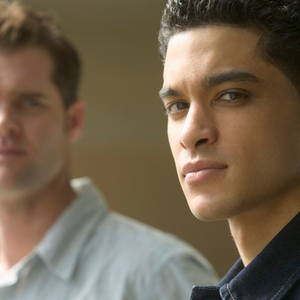We Need to Talk About LGBTQ+ Same-Sex Sexual Assault
- Brittney Herman

- Sep 10, 2020
- 3 min read
Rape and sexual assault occur between members of the same sex, just as they do with members of the opposite sex. It is a myth to believe a woman cannot commit a sexual assault or rape against another woman or a man against another man. Just like sexual assault and rape between individuals of the opposite sex, same-sex sexual assault with acquaintances, friends, partners, or strangers. LGBTQ+ sexual assaults are those committed against an LGBTQ+ person. Same-sex sexual assault is a general term referring to those assaults which are committed against any person by someone of their same sex.
The Centers for Disease Control and Prevention reports that lesbian, gay and bisexual people experience sexual violence at rates similar to or higher than straight people. The following statistics reported by the Human Rights Campaign display the prevalence of this issue:
44 percent of lesbians and 61 percent of bisexual women experience rape, physical violence, or stalking by an intimate partner, compared to 35 percent of straight women.
26 percent of gay men and 37 percent of bisexual men experience rape, physical violence, or stalking by an intimate partner, compared to 29 percent of straight men.
46 percent of bisexual women have been raped, compared to 17 percent of straight women and 13 percent of lesbians.
22 percent of bisexual women have been raped by an intimate partner, compared to 9 percent of straight women.
40 percent of gay men and 47 percent of bisexual men have experienced sexual violence other than rape, compared to 21 percent of straight men.
These numbers are compelling and staggering. The rates of sexual violence are shown to occur at higher rates among the LGBTQ+ community. Therefore, if we are to support survivors we cannot ignore the prevalence of sexual violence among LGBTQ+ individuals.
Survivors in the LGBTQ+ community face unique issues regarding sexual assault. It is not uncommon for a same-sex sexual assault to have not yet "come out" to family or friends. This survivor may feel uncomfortable telling others about their assault as it may cause others to question the survivor's sexuality at a time in which they are not ready. Further, even if a survivor has come out, they may feel that others will use their sexuality to victim-blame or shame the survivor. These are merely examples of many issues an LGBTQ+ survivor may face. One researcher summed up these troubles by stating, "these unique [concerns], rooted in discrimination, marginalization, and social oppression faced by LGBTQ persons overall, translate into poor access to services for LGBTQ sexual assault victims, disproportionate reduction in safety, and generally poor response to assault disclosure in the health, social service, and criminal justice sectors."
While many heterosexual survivors or survivors of heterosexual assault may also feel these effects of poor response to assault disclosure, studies reflect that the LGBTQ+ community feels these effects at a disproportionate rate.
We Will recognizes that while oftentimes the survivor or perpetrator of a same-sex sexual assault identify as LGBTQ+, survivors and perpetrators of same-sex sexual assault may identify as heterosexual, homosexual, or any other sexuality. This means that same-sex sexual assault does not only occur between two homosexual individuals. Just as any other assault, a same-sex sexual assault can feel extremely violating and harm those who experience it.
These assaults are especially common sexual assaults experienced by men, though women can also survive such an event. Although the survivor or perpetrator or both may be straight, a sexual assault can still occur. It is critical we not overlook this type of sexual assault as the experiences of all survivors, no matter their sexuality or the sexuality of their perpetrator, is valid.
Thankfully, there are resources for LGBTQ+ survivors and other individuals who have experienced same-sex sexual assault. Please see the list below provided by RAINN and do not hesitate to reach out to these services. Always feel free to reach out to We Will for support. As we raise awareness of LGBTQ+ sexual assault and same-sex sexual assault, we will be more able to support survivors and grow communities accepting of these survivors.
National Coalition of Anti-Violence Programs: A coalition of programs that document and advocate for victims of anti-LGBT and anti-HIV/AIDS violence/harassment, domestic violence, sexual assault, police misconduct and other forms of victimization. Site has a list of local anti-violence programs and publications. Hotline: 212.714.1141
The Trevor Project: Help and suicide prevention for LGBTQ youth. Hotline: 866.488.7386
LGBT National Hotline: Call center that refers to over 15,000 resources across the country that support LGBTQ individuals. Hotline: 888.THE.GLNH (843.4564) pen pals, weekly LQB and T chatrooms for youth.
Association for Lesbian, Gay, Bisexual & Transgender Issues in Counseling: Directory of LGBT-friendly mental health specialists across the United States. Specialists listed are verified members of AGLBTIC, a division of the American Counseling Association.
FORGE (For Ourselves: Reworking Gender Expression): Home to the Transgender Sexual Violence Project. Provides services and publishes research for transgender persons experiencing violence and their loved ones.










Comments